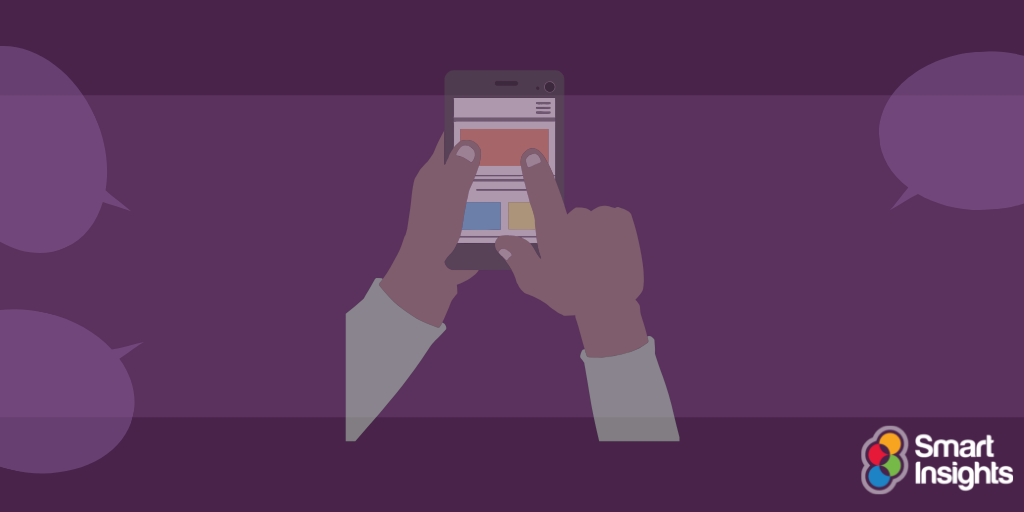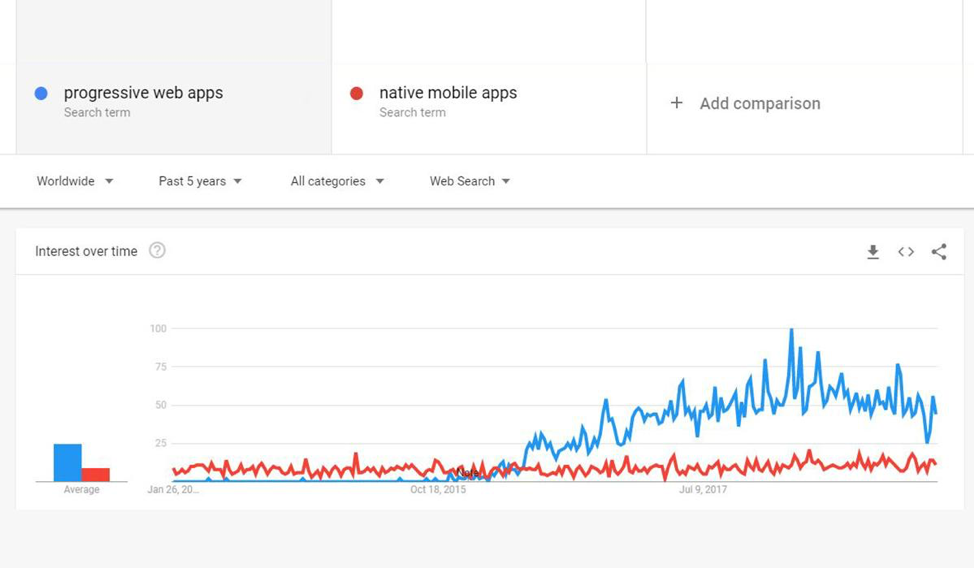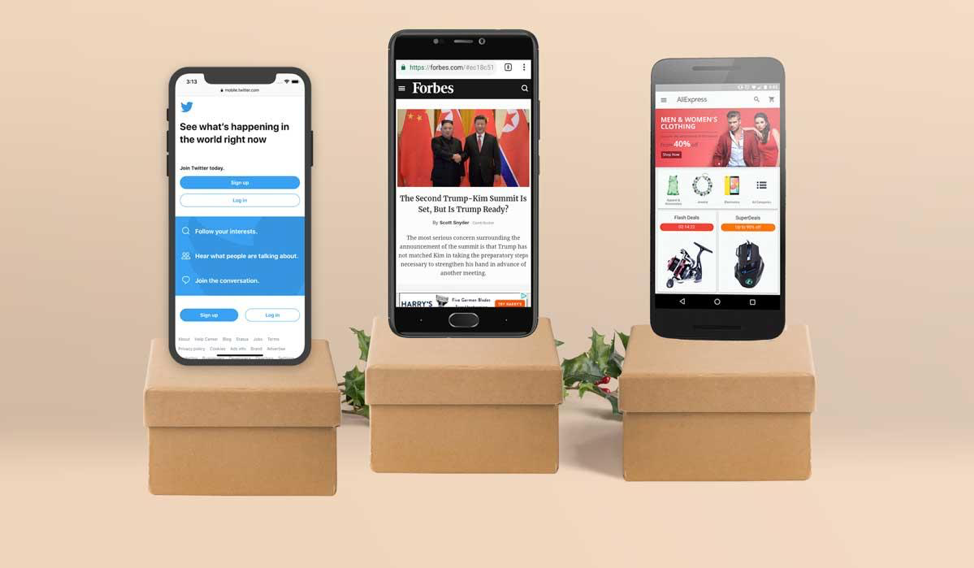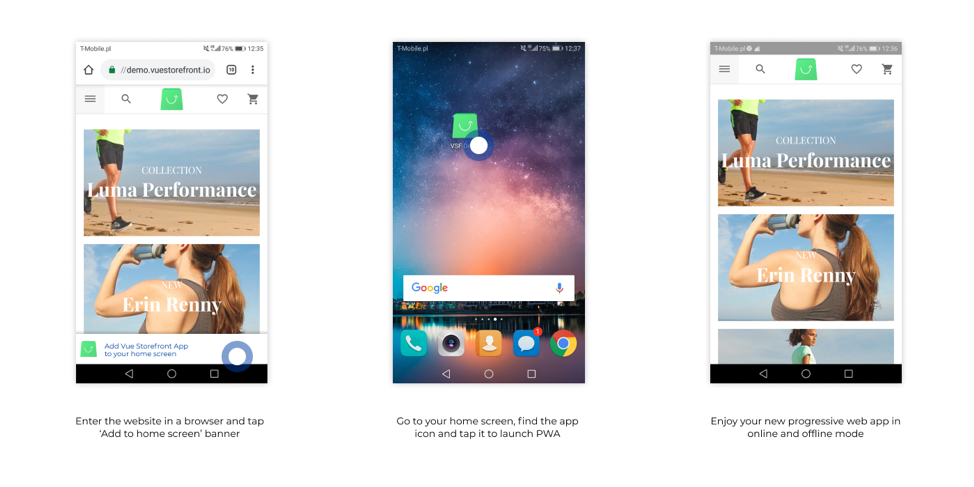Progressive web apps can help improve your social media marketing strategies by leveraging your brand
Social media has become a focal point of everyone’s lives. You want to stop wasting your time scrolling Facebook, but it’s very addictive and pleasing. I mean, even with all the negative hype about social media tactics, popular platforms like Facebook still manage to channel a significant audience.
Business models decide what to show their customers according to their shopping and online behavior, so this strategy is something that’s partially responsible for you becoming a social media addict.
It's is all part of the game and, if you want your business to succeed, you have to be really good at playing.
Social media marketing audit template
Managing social media updates as part of content marketing activities takes time. Make sure you are focusing in the right places and getting the returns on your investment with our handy Microsoft Word social media audit template.
Access the Social media marketing audit template
So, you've set your social media marketing goals and you're pretty sure you've got everything on the list.
I bet this is what your list looks like:
- Increase your brand's awareness
- Improve the ROI of your business
- Deliver high-quality sales
- Create a loyal fanbase
Do they sound familiar?
Achieving these goals depends entirely on how you work towards them and the type of marketing strategies you adopt. Influencer marketing, mobile campaigns, content marketing, digital content, using the latest e-commerce trends and giving excellent customer service are some tried and tested methods for leveraging more sales.
However, social media marketers commonly face issues due to mobile-gap and app-gap. Even though mobile devices have much higher traffic compared to desktop and other devices, there is a noticeable mobile gap of about 49%. The mobile conversion rate is much lower than desktop conversion. The reason behind low mobile conversion rates is slow mobile connectivity, low user attention span, inefficient or slow performance and bad user experience.
Progressive web apps (PWAs) can resolve all of these issues and do wonders for your brand. If you still have no idea what I'm talking about, let’s take a look at what progressive web apps are.

What are Progressive web apps?
Progressive web apps are websites that function just like mobile apps. Progressive web apps are created so that users 'no longer' have to go through the pain of visiting the app store and then downloading and installing the software. Users can open the browser, type in the web address and they are effectively directed to a website that looks and functions just like native Android or iOS mobile applications.
Progressive web apps are:
- Fast: Very responsive to user interaction.
- Reliable: Load instantly even if you don’t have an internet connection.
- Engaging: Give an immersive user experience and keep users engaged.
Twitter, Aliexpress, and Forbes are some famous websites that have developed amazing PWAs. Progressive web apps have helped them increase their usability and attract a greater audience.
PWAs are especially applauded by Google and Microsoft. Why? Because Google is able to bring more life into the worldwide web and Microsoft is able to lower the app gap. But the question arises, how will a PWA benefit social media marketing? How can social media marketers benefit from PWAs?
Benefits of PWAs in social media marketing
Here are some common social media marketing problems and their solutions using progressive web apps.
1.Connecting with the audience
When it comes to using social media marketing as part of your overall strategy, marketers want it all fast. They want a greater audience, more customers and more sales now.
It’s not that simple though. Social media marketing is a strategy to 'connect' and 'interact' with your audience. So getting there requires time. The problem is that the audience is limited due to the lack of device compatibility, speed and lack of efficiency. Customers hate waiting and let’s be honest they want everything in one place without having to move between different pages.
PWAs provide an opportunity to increase your audience. Research has shown that while shopping, if customers face connectivity issues or slow page loading time, in most cases, they will abandon the product altogether. Where a native mobile app cannot function in areas of poor network coverage, PWAs can work offline and minimize the page loading time. They also allow users to seamlessly transfer from their social media channels to a product or other transaction pages in e-commerce.
A progressive web app for your business will be easier to find on Google and will be easily accessible by a global audience. They don't need to be installed from the app store as, if users prefer, they can simply install the app from their browser. PWAs are compatible with all types of devices, phones, tablets and even desktops. All of these benefits add up to one thing: marketers will naturally get a greater audience with a PWA.
Forbes used to take about three and 12 seconds to load and about 53% of users would abandon the site due to its low speed. After adopting a PWA, Forbes noticed a 43% increase in their sessions.
2. Developing customer loyalty
People are now savvier when it comes to spotting marketing tactics. This doesn’t mean that you should stop playing the game; you just have to tone your efforts down slightly. This will make it slightly easier to earn a user’s trust, helping you create a loyal fanbase.

[Image via Google Trends]
You can see above that progressive web apps are gaining more popularity when compared to native mobile apps.
Your native app or your social media profile might not be attracting the audience you desire. The reason is that once a customer gets what they want, there is a slim chance they will return for more. They might even forget about your website altogether or they may simply start purchasing from your competitors.
To make sure that you retain your customers, you have to provide something extra. You need to devise a strategy to keep them coming back to you. This is where PWA come into the picture.
PWA’s bring an exciting opportunity for social media marketers as they support push notifications. This means that marketers can send valuable, contextual and personalized information to their consumers with a simple 'one-click' option. Consequently lowering the communication gap between marketers and customers and developing a sense of loyalty and trust.
3. Encourage sharing and re-engagement
By utilizing PWAs for social media, marketers can enhance customer engagement. They will be able to send push notifications to interact with people and encourage them to opt for their brand. PWAs are capable of using your device features like the camera, GPS and face detection to keep the customers engaged. Pretty soon AR and VR will also be integrated to bring a fresh perspective to the table.
Alibaba’s PWA strategy lead to a four-times increase in user engagement and a 76% increase in its conversion rate.
4. Improved ROI and cost-effective
The development cost of progressive web apps is much lower than the development cost of native apps. This feature is especially useful if you are a startup company or small business.
Businesses like Forbes and Aliexpress noticed an improvement in their conversion rates and ROI. The average increase in conversion rate for mobile users is about 38%. This means additional revenue of about $1.8m a year for retails making $5m annually.
Most of us have been using the Twitter PWA without even realizing that it is, in fact, a progressive web app. Twitter Lite is the PWA version of Twitter. Twitter noticed a 65% increase in page sessions and a 20% decrease in bounce rate. With an increase in user engagement, the ROI was ultimately improved.

Consequently, one of the most significant problems that social media marketers face is social media ROI. This problem can be effectively solved with a PWA.
Another advantage of PWAs is that they have very low data consumption compared to native apps but still manage to deliver a faster browsing experience. Users will be drawn towards this app due to lower cost, performance and compatibility. This will ultimately increase brand awareness and improve sales.
5. Increased conversion rates
More than half of the users fail to install apps from social media and other online banners. PWAs don’t need to be installed unless a user wishes to install it. In that case, a PWA can be easily installed by clicking on the ‘Add to home screen’ button.
This means that a user can instantly install the app and interact with its features; this will increase the conversion rate and sales for your website.
Conclusion
The latest tools and technologies have facilitated PWAs to provide a smooth and seamless user experience. If you’ve tried and tested every other tactic to drive conversions from social media marketing, consider using PWAs. Considering the above-mentioned benefits, there is no reason to doubt the capability of PWAs. It is something new, and it adds a fresh perspective for you and your customers.
Khloe Hunter is a Digital Marketing Executive for
Appverticals. Her expert writing skills, enable her to convert complex information, into content that anyone can read. Her technical educational background, combined with the know-how of content marketing, gives her an edge over others in a variety of blog posts.











